Navigating academic probation can be a challenging experience, but it's also an opportunity for growth and reflection. In this letter, we aim to clarify the reasons behind your current academic standing and outline a plan for success moving forward. We believe that with the right support and resources, you can turn this situation around and achieve your educational goals. So, let's dive in and explore how to effectively communicate your circumstances and set yourself on the path to academic recovery!
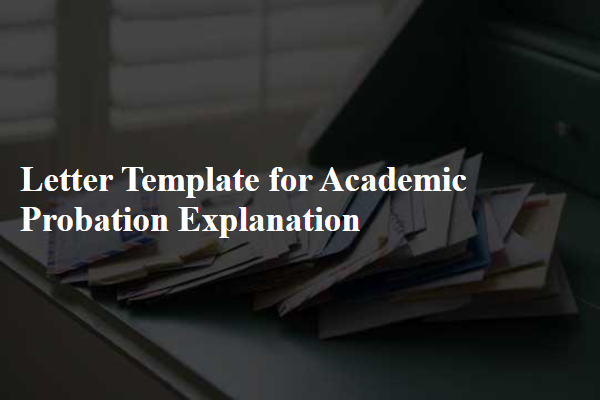
Introduction of the situation and acknowledgment of the academic status.
Academic probation represents a critical juncture in a student's educational journey, signifying that their cumulative Grade Point Average (GPA) has fallen below the institution's established threshold, typically around 2.0 for many colleges and universities. This status, often assessed at the end of each semester, necessitates immediate attention and remedial action. Students on academic probation are typically required to meet specific conditions set by the academic department, which may include mandatory tutoring sessions, reduced course loads, or regular meetings with an academic advisor. Recognizing the implications of this status is essential for fostering an environment of accountability and commitment towards academic improvement.
Explanation of the circumstances leading to academic probation.
Academic probation can occur due to various factors impacting a student's academic performance, including personal challenges and external pressures. For instance, a student experiencing health issues, such as anxiety disorders or chronic illnesses, may find it challenging to maintain a GPA above the required threshold (typically a 2.0 at many institutions). Additionally, unforeseen circumstances such as family emergencies or financial difficulties can divert focus from studies, resulting in lower grades. Transitioning from high school to university settings often presents difficulties, including increased workload and higher expectations, further complicating a student's ability to adapt. These myriad factors contribute to the conditions leading to academic probation, prompting the need for support and intervention from academic advisors or counseling services.
Steps taken to address the issues and improve future academic performance.
Academic probation occurs when students fail to maintain a minimum Grade Point Average (GPA) required by institutions, often around 2.0. To address this situation, students may develop a structured academic improvement plan. Regular meetings with academic advisors can be beneficial in seeking guidance on course selection and degree requirements. Utilizing campus resources, such as tutoring centers or writing labs, can enhance understanding of difficult subjects. Setting specific and achievable goals, such as attending all classes or dedicating a fixed number of study hours each week, can foster accountability. Additionally, engaging in time management techniques and prioritizing assignments can lead to better grades. Tracking progress closely through frequent self-assessments can also provide valuable insights into performance improvements and setbacks.
Support systems and resources utilized for improvement.
Utilizing various support systems can significantly enhance a student's academic performance while on probation. Academic tutoring services, such as those offered by university learning centers, provide personalized assistance in subjects like Mathematics and Science, essential for course mastery. Study groups formed with peers can facilitate collaborative learning, fostering a deeper understanding of course material and promoting accountability. College counseling resources can help students develop effective time management strategies and address personal challenges affecting academic success. Workshops on critical thinking and research skills further equip students with essential tools for navigating complex assignments. Regular meetings with academic advisors ensure tailored advice and progress monitoring, encouraging a proactive approach to regaining good academic standing.
Closing remarks and expression of commitment to academic success.
Academic probation may create significant stress among students, particularly during a transition to rigorous coursework. Navigating this challenging phase requires a strong commitment to improvement and growth. Establishing a clear plan for academic recovery, including utilizing campus resources such as tutoring centers or academic advising, can significantly enhance a student's chances of success. Engaging in consistent study habits, attending all classes, and actively participating in discussions fosters deeper understanding and retention of material. Demonstrating resilience and dedication during this period not only aids in regaining good standing but also builds critical life skills that contribute to long-term academic achievement and overall personal development.

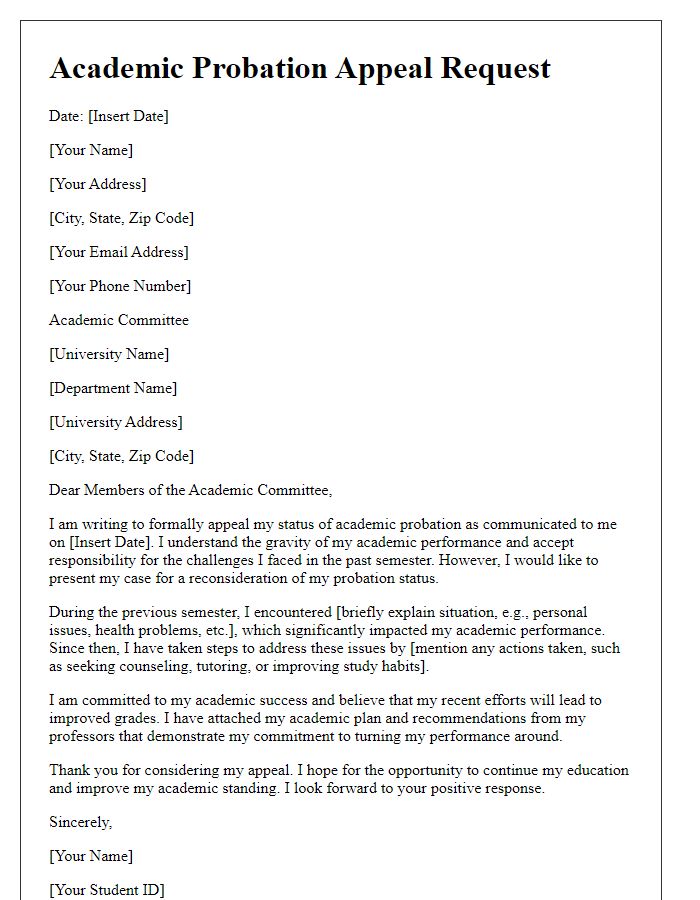
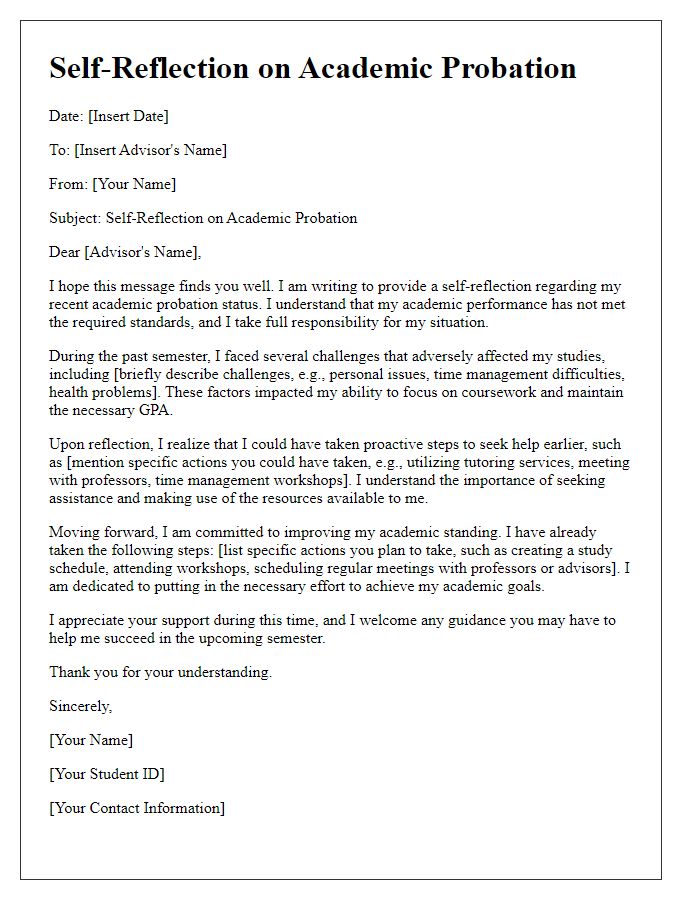
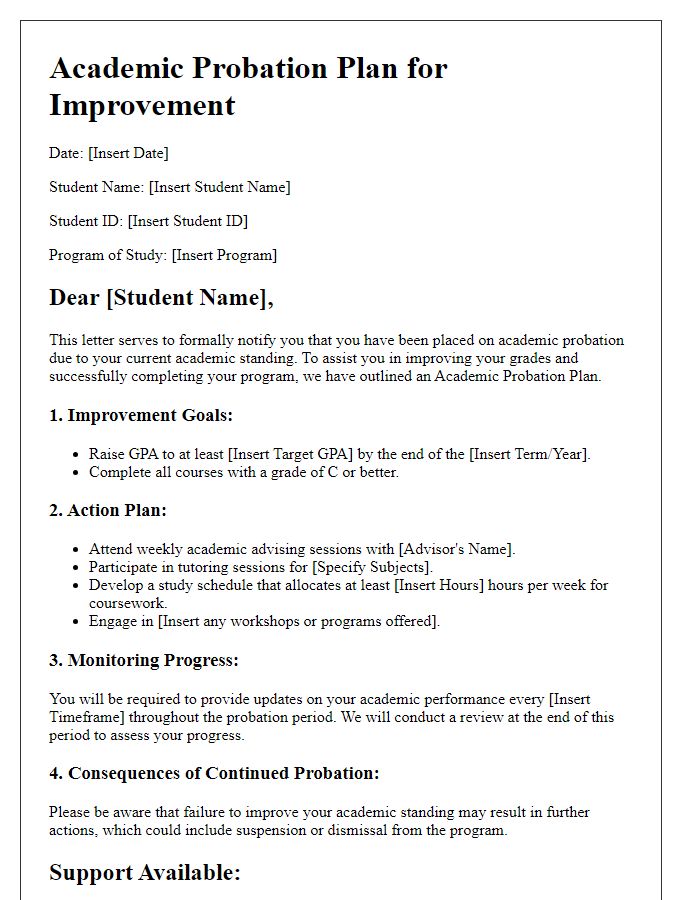
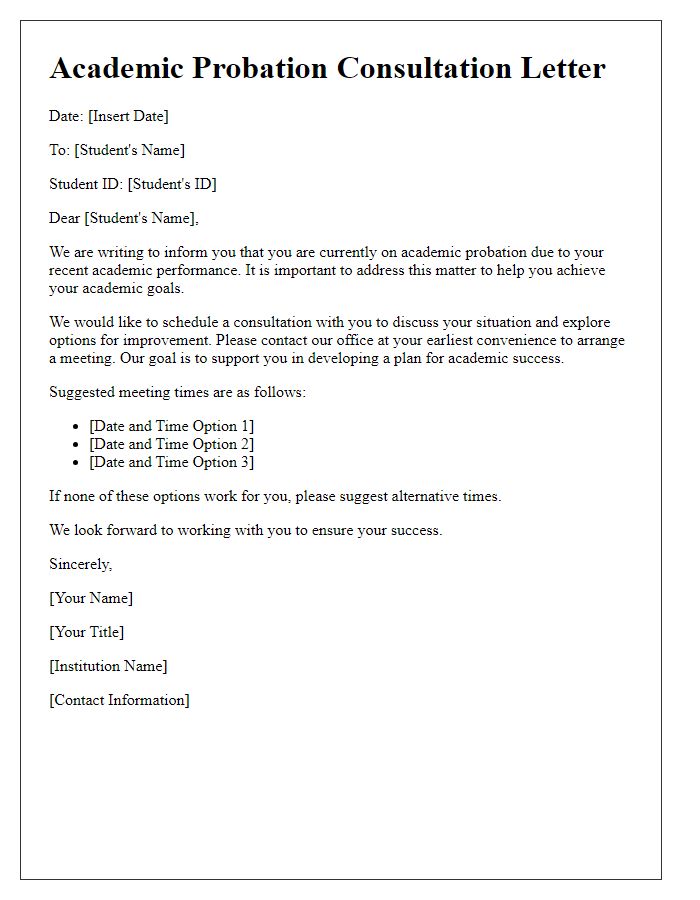
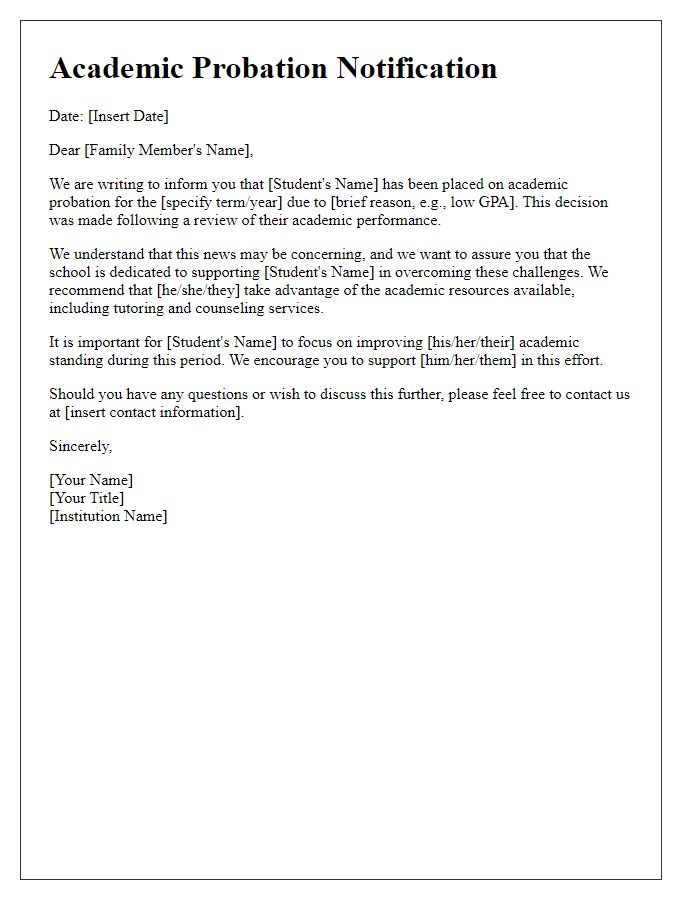
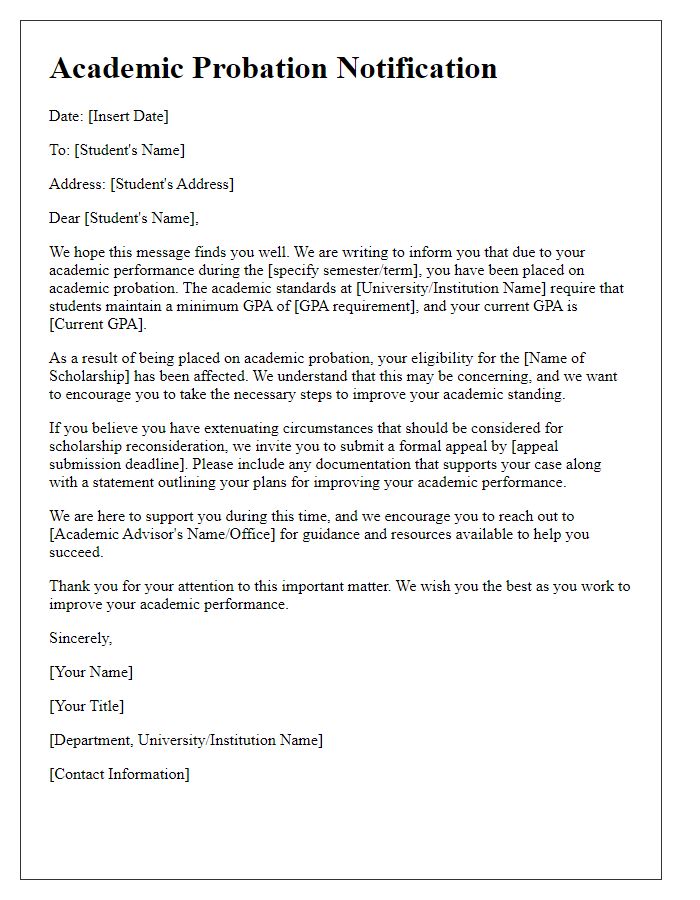
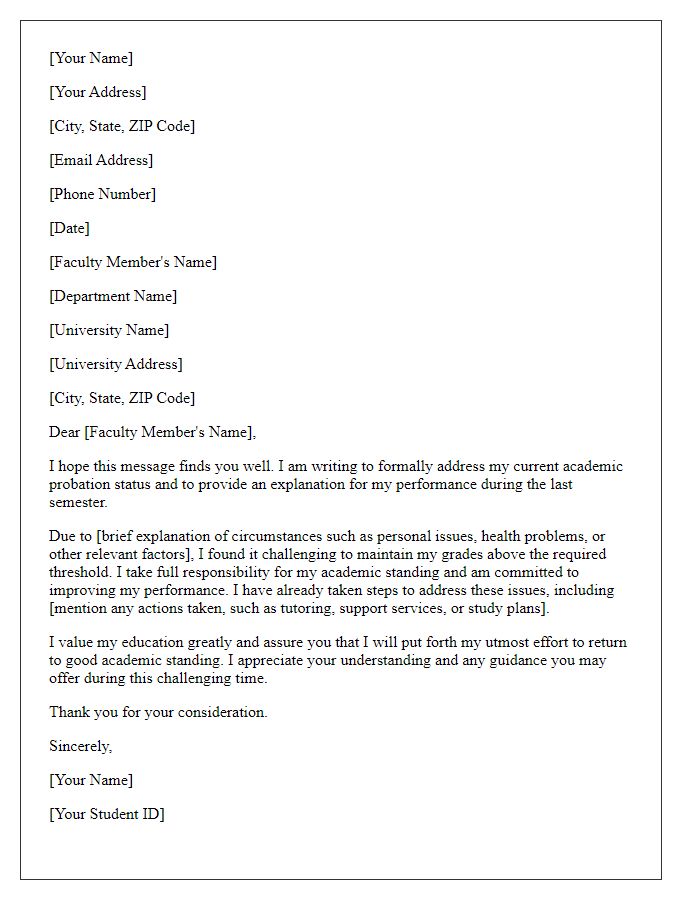
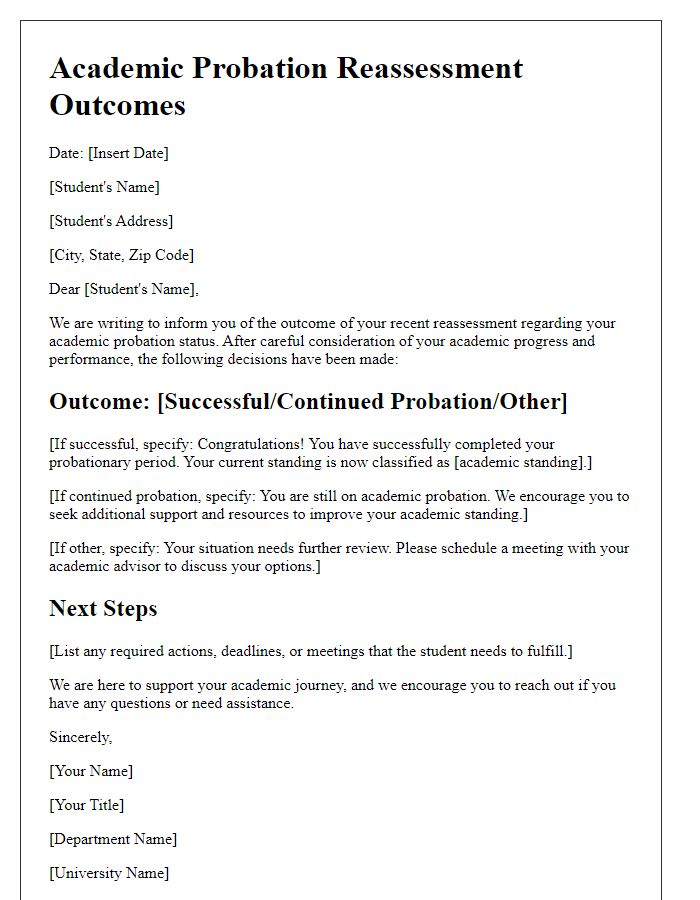
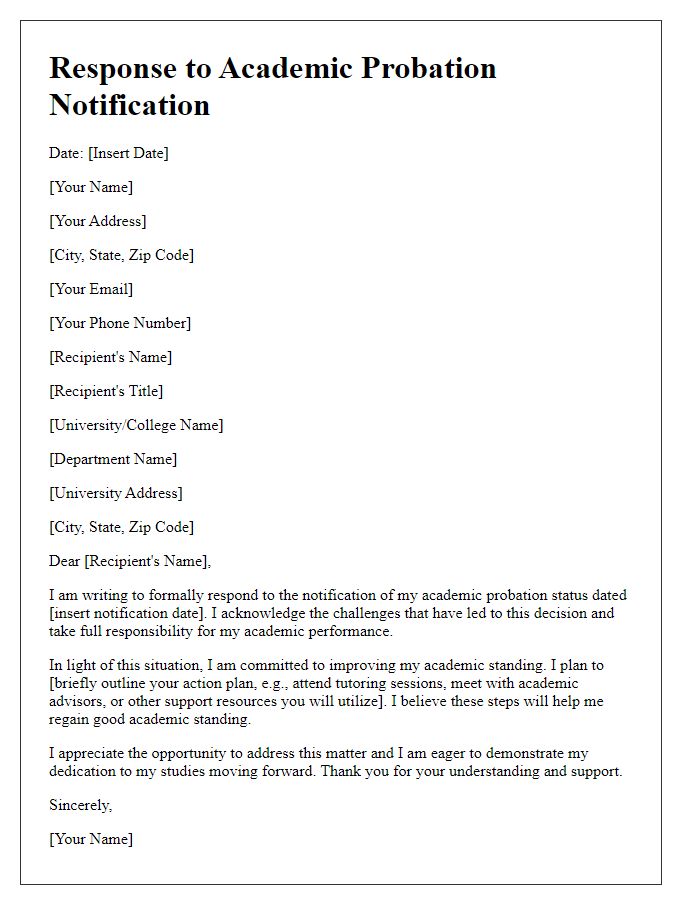
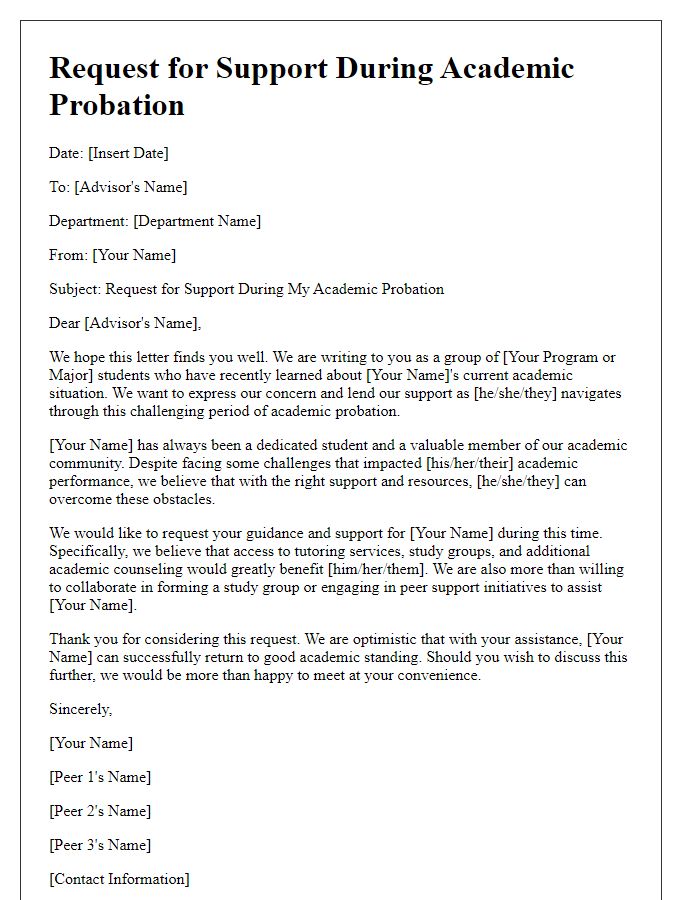

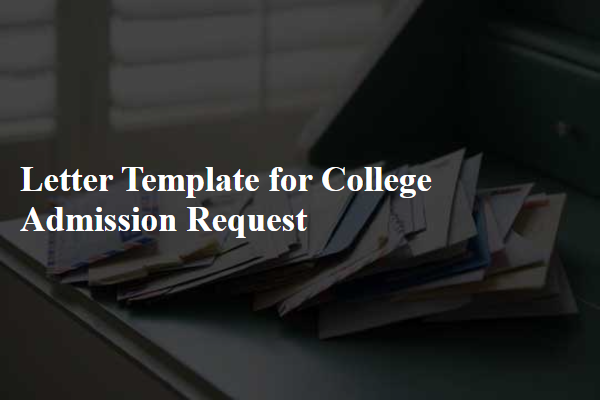
Comments